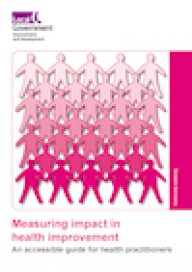Publications
 We author and publish a range of resources to keep you up to date with the latest developments in employment, labour market and human resource policy and practice.
We author and publish a range of resources to keep you up to date with the latest developments in employment, labour market and human resource policy and practice.
All our pdf publications are free to access.
-
📄
Impact of interfirm relationships – employment and working conditions
Hadjivassiliou K, Cox A, Martin R, Marchington M, Sheehan M, Gloster R, Pollard E, Grimshaw D, Rubery J | Apr 2011 | European Foundation for the Improvement of Living and Working ConditionsThis study was commissioned by the European Foundation for the Improvement of Living and Working Conditions (Eurofound) in February 2010. Its purpose was the in-depth study of the impact of five types of interfirm relationships – joint ventures, clusters, public-private partnerships (PPPs), strategic alliances/networks and virtual company networks (VCNs) – on employment and working conditions.
-

The role of Assistant Practitioners in the NHS
Factors affecting evolution and development of the role
Miller L | Apr 2011 | Skills for HealthThis paper provides an overview of the current position regarding Assistant Practitioners within the NHS. The paper starts by outlining the background to introduction of these posts and their current qualification requirements, and then goes on to consider the factors that have contributed to introduction of these roles, and the challenges and debates regarding their introduction.
-

Learning to swim, learning to fly?
A career in organisational development
Garrow V, Varney S | Mar 2011 | Institute for Employment StudiesThis report examines how people make their way in Organisational Development (OD), what kinds of skills and experience they find most valuable and the routes they have taken to developing a top level career. We ask whether OD professionals are born or made. We asked practitioners what learning they would like to share with others wishing to develop a career in OD, and their advice is here in this report.
-

Econometric Analysis of SET Technicians
A European Comparative Study
Jagger N | Mar 2011 | Institute for Employment StudiesThis study (funded by the Gatsby Charitable Foundation) examined the relative impact of Science, Engineering and Technology (SET) Professionals, SET Technicians and research and development (R&D) expenditures on the economic performance of a range of sectors across the European Economic Area using econometric analyses.
-
📄
Achieving Change Using the Supply Chain Model in Construction
Wilson S, Tyers C | Feb 2011 | Health and Safety Executive (HSE)The Health and Safety Executive has been working in partnership with the construction industry since the 1990s to bring about improvements in risk management by developing solutions together. One aspect of this is an initiative called the supply chain model, which attempts to take a cohesive approach by drawing together stakeholders from across the construction industry, such as suppliers, contractors, clients (from both the public and private sectors) and designers/architects. In 2009 HSE commissioned the Institute for Employment Studies to undertake a qualitative evaluation of the supply chain initiative and its component work strands. This report presents the evaluation’s findings.
-

Measuring impact in health improvement
An accessible guide for health practitioners
Garrow V | Feb 2011 | Improvement and Development Agency (IDeA)This guide has been developed for practitioners working for councils and public health organisations evaluating the impact of a project or initiative. It will take you through the process of designing, implementing and disseminating an impact assessment and will also provide information on the range of tools and help that is available. It aims to be a practical guide, helping you to design and conduct effective and appropriate impact assessment.
-
📄
Activity Agreement Pilots - trialling different approaches to re-engaging young people not in education, employment or training (NEET)
Evaluation of the 2009-10 extension
Maguire S, Newton B, with Fearn H, Oakley J, Williams C, Miller L, Levesley T | Feb 2011 | Department for Children, Schools and Families (DCSF)Activity Agreements (AA) were piloted in eight areas of England between April 2006 and March 2011 and were designed to help re-engage young people (aged 16 or 17) not in employment, education or training (NEET). This report evaluates the final 12-month extended period of these pilots (known as Pilot 3).
-
📄
Developing an Outstanding Evidence Base to Support Regional Skills Activity
Cox et al. | Jan 2011 | South East England Development AgencyThis report, analysing the demand for skill in the South East was produced by SEEDA in collaboration with the Institute of Employment Studies, during the summer of 2010. This publication is no longer available from the client.
-

IES Annual Review of the HR Year Ahead 2011
From restructuring to rebuilding
Dec 2010 | Institute for Employment StudiesTwo perspectives are addressed in this review of where HR is going in 2011 by thirteen of IES's HR researchers. In the first, we consider the recent experiences and research on restructuring organisations and the critical role of leadership in doing this successfully. In the second, we consider more specific ways in which organisations are rebuilding morale and performance in their workforce as they emerge from recession and cost cutting.
-

European Restructuring Monitor Quarterly - 2010, Issue 4
Hurley J, Riso S, Salvatore L, Miginis M, Broughton A | Dec 2010 | European Foundation for the Improvement of Living and Working ConditionsSovereign debt issues dominated the agenda in the final quarter of 2010 as a second EU Member State, Ireland, required EU-IMF intervention in November to stave off default. Given similar concerns in other Member States a focus on the health of the euro and on individual government deficits and access to market funding was expected to continue throughout 2011.
